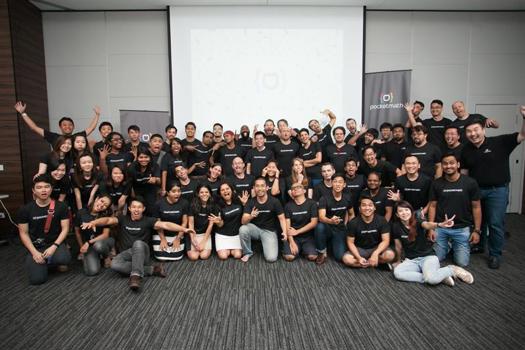Ovo Energy has always liked to do things a little differently. The ‘challenger’ energy company positions itself as different to the big six energy firms, with a focus on doing the right thing. Founded in 2009 it now has 680,000 customers (a 2.5% share of the UK domestic energy retail market) and 1,200 employees, in London and Bristol.
This desire to be different extends to its people practices, as chief people officer Kim Atherton explains, with a focus on retaining an innovative start-up-like culture as it scales. Here Atherton, who was recently named one of Grant Thornton’s 100 Faces of Vibrant Economy, reveals some of Ovo’s secrets to success…
Focus on recruitment
For Atherton hiring underpins everything, and is critical to ensuring Ovo’s culture doesn’t change for the worse as it grows. “A culture is ultimately just a bunch of people who share values and like doing the same stuff,” she says. “Therefore making sure we are recruiting against our values is the most important thing. The culture has evolved but the root of it – the values and shared vision – remains similar because we’ve managed to hire the right people.”
Ovo recruits on “learning agility” rather than experience and is looking for people driven by collaboration. Assessment centres have been designed to “try and spot somebody’s underlying motivations”, says Atherton, whose background in occupational psychology gives her a scientific slant.
“We take a holistic approach,” she explains. “Instead of asking competency-based questions like ‘tell me about a time you experienced change’, we go through their CV and ask what they liked about each role. You start to build up a picture of someone without leading them. It’s about getting a more holistic picture of the individual.”
An applicant tracking system also allows Atherton and her team to build a picture of who the best interviewers and talent spotters are. “We have grown so much that right now to be a good leader is to be a good recruiter, because you need to build your team,” she says.
Don’t be afraid to get tough
When you're a fast-paced business making the wrong hiring decision can have a big – negative – impact. And Atherton reveals that at times Ovo has “taken a tough line” and there has been “a lot” of turnover in the senior team. “We haven’t been afraid to make tough decisions,” she says. “If someone isn’t working out that can have a much bigger cultural effect.”
Making tough decisions applies to strategy as much as people. Ovo ventured into the telecoms market last year, but the senior team “quickly realised we weren’t going to be able to provide the best service for our customers” so the company pulled out. “Half the battle in innovation is being able to take risks and then say fine [when it doesn’t work],” says Atherton.
Look for ‘flexible outlooks’ in HR
Ovo has three values: find a way, be the good guys, and build something great. And these apply to the HR team as much as anyone else. “Finding a way is one of the biggest things we recruit against: being innovative,” Atherton explains. For HR that means looking for “people with flexible outlooks, rather than those who say ‘the policy doesn’t say that’.
“We are trying very hard [in HR] not to be ‘computer says no’,” she continues. This means telling managers: "these are the golden rules and please don’t make any decisions here without consulting HR", but “we want you to empower yourself”. “It’s about knowing which bits to hold tight and which to let loose,” she adds.
HR has a role to play in supporting innovation by “allowing flexibility for the right teams to come together”, Atherton believes. “We are exploring the idea of the goal-orientated team rather than the hierarchical one. That doesn’t have to be technology – it could be an issue like attrition, say, bringing a working group together in a more fluid way.”









